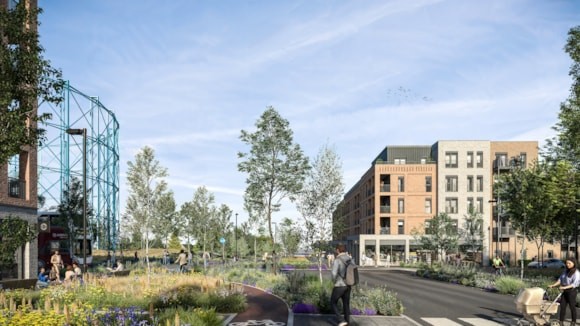Liverpool Waters has welcomed its newest residential development, Lighthaus, a 31-storey Build-to-Rent (BTR) tower in Princes Dock. Developed by Vermont, alongside Peel Waters, X1 Developments, and Starlight Investments, the 278-home project is set to welcome its first residents later this month. The development offers a mix of studio, one, two, and three-bedroom apartments, complemented by a sky lounge with panoramic views of Liverpool and the River Mersey, a fitness centre, co-working spaces, a residents’ lounge, and a 24-hour concierge service. Lighthaus has been designed with modern renting in mind, providing professionally managed, high-quality accommodation with convenient access to Liverpool’s iconic waterfront and city attractions. In addition to addressing the city’s demand for rental homes, the project has created employment and training opportunities for local residents throughout construction. Positions included permanent roles, apprenticeships, and work experience placements via the City of Liverpool Construction Academy, located within Liverpool Waters. The completion of Lighthaus marks another milestone in the ongoing Liverpool Waters masterplan, the largest urban regeneration initiative in the city’s history. Led by Peel Waters, the scheme is set to deliver thousands of new homes along with significant commercial and leisure space, reinforcing Liverpool’s position as a major northern growth centre. Princes Dock, where Lighthaus is located, now boasts over 1,000 completed homes, along with Liverpool Cruise Port, the Isle of Man Ferry terminal, and attractions such as the Wyld Sauna, the UK’s first public floating sauna. The area has also been selected as the site for the UK’s first floating Padel tennis courts, due to open in spring 2026. Speaking on the project’s completion, Chris Capes, Liverpool Waters Development Director at Peel Waters, said: “This achievement reflects our long-standing partnership between Peel Waters with X1 Developments and Vermont Construction, whose expertise has been instrumental in delivering exceptional results. Beyond creating a stunning new residential tower, this development has generated a fantastic pipeline of opportunities for local people throughout the build; from full-time employment to apprenticeships and placements for students at the onsite City of Liverpool Construction Academy. “Lighthaus demonstrates the strong appeal of Liverpool Waters as a destination for international investors, reinforcing the confidence in our vision and we’re only just getting started. With more residential developments, new public spaces, and vibrant amenities on the horizon, Liverpool Waters is shaping up to be one of the most exciting waterfront communities in the UK.” Building, Design & Construction Magazine | The Choice of Industry Professionals














